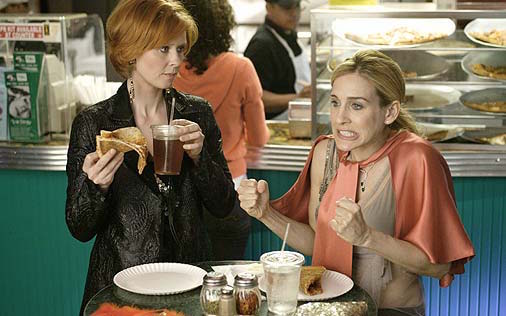If you took a survey about your environmental habits, would the results say that you care about the environment?
Mine didn’t.
A couple of years ago, I heard some Chase Bank executives speak at a conference. What was interesting about the whole encounter—and what stuck with me—was the discussion around identity and how our actions and purchasing habits either correspond to who we think we are or clash with it.
The Chase executives spoke about how purchasing habits say more about us than our conversations or surveys do. People can say that they identify as an environmentalist, yet days later go out and buy a Hummer.
The problem with surveys, most times, is that people generally choose the choices reflecting the person they would, ideally, like to be, but at the end of the day, their actions prove they are someone different.
This has been a frustrating outcome in many psychological studies. There is a way to get the right survey results by manipulating the wording of each question, but that is not what this was about. This is about there being an incongruence between our words and actions.
As the executives had access to their clients’ purchasing information, they were surprised time and time again as surveyed results and actions never aligned.
Though most people would like to do well in the world, circumstance gets the best of us, and our underlying desires don’t align with who we think we “should” be. We know we “should” be recycling or buying a more economical car, but when it comes to it, we choose, whether consciously or subconsciously, not to.
A couple of weeks ago the New York Times did a piece featuring the democratic candidate’s Spotify playlists. After several weeks hearing the candidates say inspiring and heartfelt words, we got to see a bit of them, not through their words, but through their actions. We got to see what songs they were choosing for their rallies and how that reflected the demographic they were attracting.
The playlist compilation was a lighthearted way to look at the candidates, but it also had results similar to what the Chase executives mentioned. We can speak highly about ourselves all day long, but when it comes to taking action, what actions do we take? What songs do we choose? What demographic are we attracting, or trying to attract?
About two years ago I lost my car to hurricane Harvey. Before that, I was a proclaimed environmentalist whose actions didn’t quite align with those statements.
Studying Environmental Engineering in college, I was well aware of the damage we’ve done to our air and water, among many other things. However, when it came to my day-to-day life, I recycled when possible, rode my bike when it was convenient, and brought a to-go container only when I could remember. Grabbing a coffee-to-go was synonymous with a great weekend adventure.
My actions didn’t always align with what I believed, and I was a great representation of what the Chase executives were talking about.
I remember biking to work one day and having to cross a five-lane, Houston highway. That was the first and last day I rode my bike to work, even though I had biked my whole life.
Still, I considered myself someone who cared about the environment.
Flash-forward two years after Harvey struck, and I vowed never to buy another car. Mostly because I knew that convenience and ease would always trump my desire to do what I could to help the environment.
That’s what makes me a little scared when it comes to climate change. Knowing myself, I’d say I’m a pretty average human. I forget and mess-up just as many times as others, if not more.
I had read (well, technically studied the environment for four years) and knew what I could do on my own to make a difference, yet I didn’t, not all of the time. I took action when it made sense or when it was easy or when it didn’t inconvenience me.
Today, as we enter into what could be the last years of the human race’s existence—seeing as the storms are getting bigger and more destructive and temperatures are rising—there are many lists stating what we can do to save ourselves: drive less, eat less meat, use less plastic, choose and support ethical products, buy less.
But, even with all of this knowledge floating around, it is not enough. While many consider our role in climate change negligible—stating that climate change is a systemic problem that only large corporations can solve—we play a role, an important one.
We must remember that we, too, are a part of the system. We vote with our money, each and every day—for recycling or not, for the steak dinner that perpetuates an unsustainable carbon and water footprint, for the plastic coffee-to-go container that encourages corporations to take a “business-as-usual” approach with single-use plastics.
As long as there is a more comfortable, convenient option, we will always choose it. I will always choose the car when I’m chronically running five minutes late. I will always choose the to-go container if I didn’t have time to plan ahead. Planning is annoying and inconvenient, right?
As scientists uncover more and more information about climate change and what we can do to reverse it, I’m hopeful, but I’m also realistic. It is proven that humans will always choose the more comfortable option to bypass discomfort.
As long as plastic is more convenient, money from oil supports many families’ well-being (even mine), and riding in a car saves time, changes will not happen fast enough.
Who would opt to sail across the Atlantic to travel to Europe? Besides Greta Thunberg, I’d say most people can’t take a full month off of work to make the crossing, and that’s not even considering the time we would need to take a full vacation after the trip.
Changing our ways may seem difficult and uncomfortable, and when Greta says we need to take action, I agree, but I would go one step further, or rather I would put one step in-between us and that action.
It will take discomfort for us to change. It won’t be until the fumes fill our lungs, the storms flood all of our homes, and we lose the green space we grew up in that the more convenient and comfortable option will be to change. Let’s not wait that long.


 Share on bsky
Share on bsky





Read 10 comments and reply